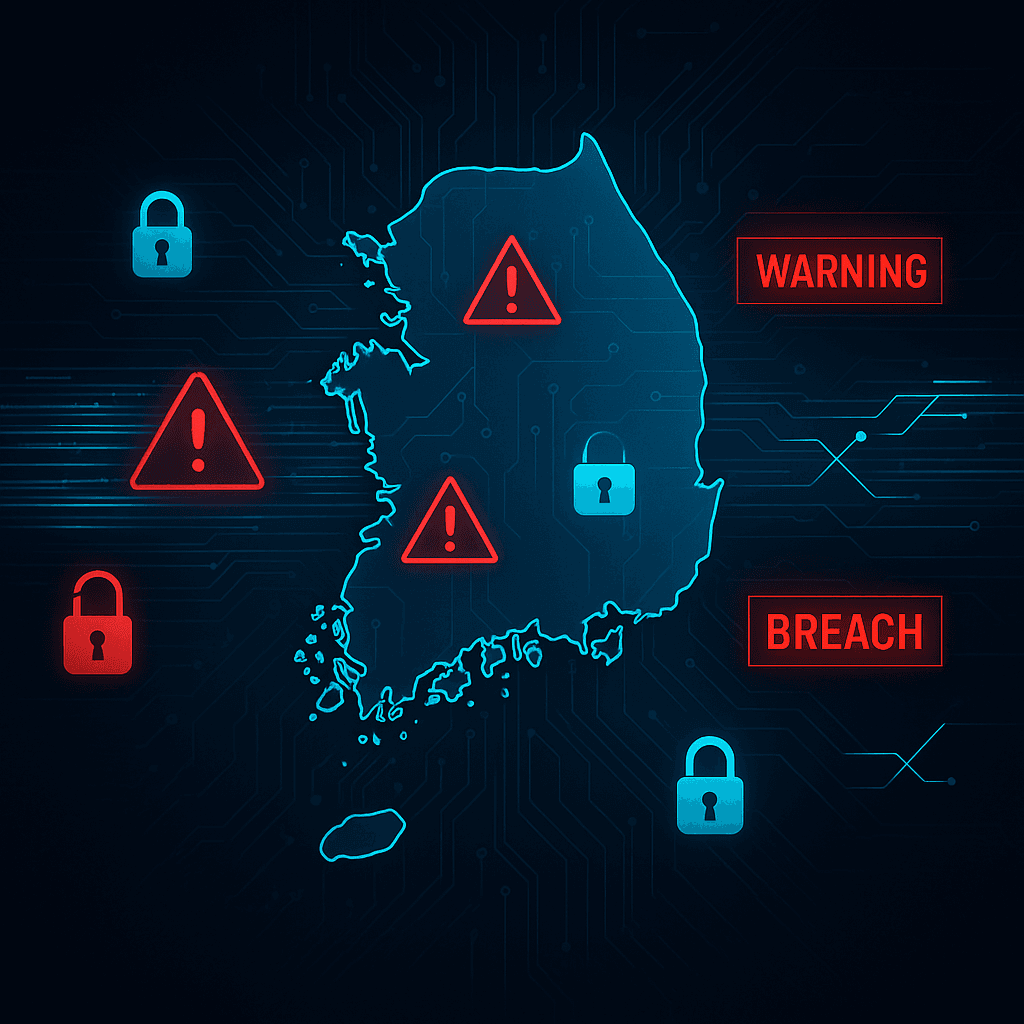South Korea's digital prowess is backfiring spectacularly. The country that gave us blazing-fast internet and tech giants like Samsung is now getting hacked almost monthly, with nine major breaches this year alone affecting millions of citizens. From SK Telecom's 23 million customer data theft to ransomware attacks on financial institutions, the nation's fragmented cybersecurity response can't keep pace with increasingly sophisticated threats.
South Korea's reputation as a digital powerhouse is under siege. The country that boasts the world's fastest internet speeds and gave birth to tech giants like Samsung and LG is now experiencing a cybersecurity crisis that's shaking confidence in its digital infrastructure.
Almost every month this year has brought a new major breach. The carnage started in January with GS Retail's 90,000 customer records exposed, escalated through SK Telecom's devastating April attack that compromised 23 million customers - nearly half the country's population - and continued through September with KT's latest breach affecting 5,500 subscribers.
"The government's approach to cybersecurity remains largely reactive, treating it as a crisis management issue rather than as critical national infrastructure," Brian Pak, CEO of Seoul-based cybersecurity firm Theori, told TechCrunch. Pak, who also advises SK Telecom's parent company on cybersecurity innovations, points to a fundamental structural problem: government agencies work in silos.
The numbers paint a grim picture. February saw blockchain gaming company Wemix lose $6.2 million to hackers but didn't disclose it for five days. April brought attacks on job platform Albamon exposing 20,000 resumes. June and August each delivered ransomware strikes against Yes24, South Korea's major ticketing platform, with the August attack marking the company's second hit in just two months.
Financial institutions have been particularly vulnerable. Seoul Guarantee Insurance suffered a July ransomware attack that paralyzed core systems, leaving customers unable to verify guarantees. Lotte Card, one of the country's largest credit card issuers, discovered in late August that hackers had been inside its systems since July, making off with 200GB of data affecting roughly 3 million customers. The breach went undetected for 17 days.
Meanwhile, North Korea-linked hackers have been running sophisticated campaigns against diplomatic targets. The Kimsuky group deployed AI-generated deepfake images in spear-phishing attempts against South Korean military organizations and spent months infiltrating foreign embassies in Seoul by disguising attacks as routine diplomatic emails, according to .












